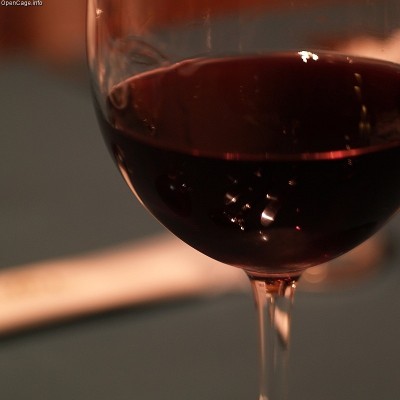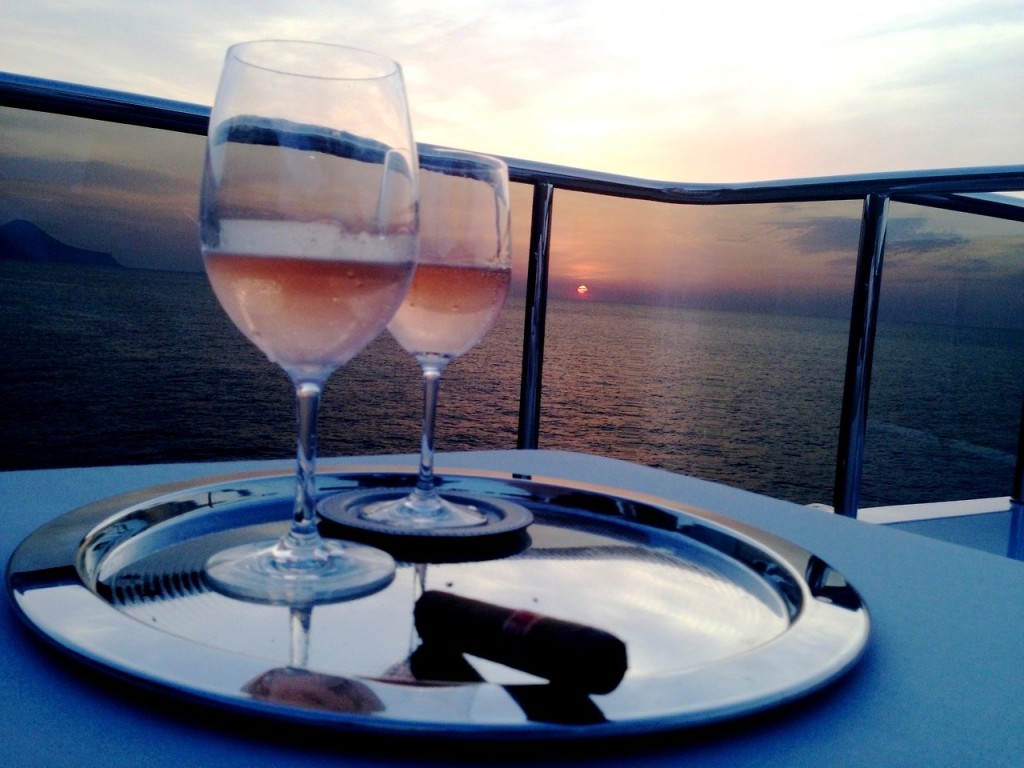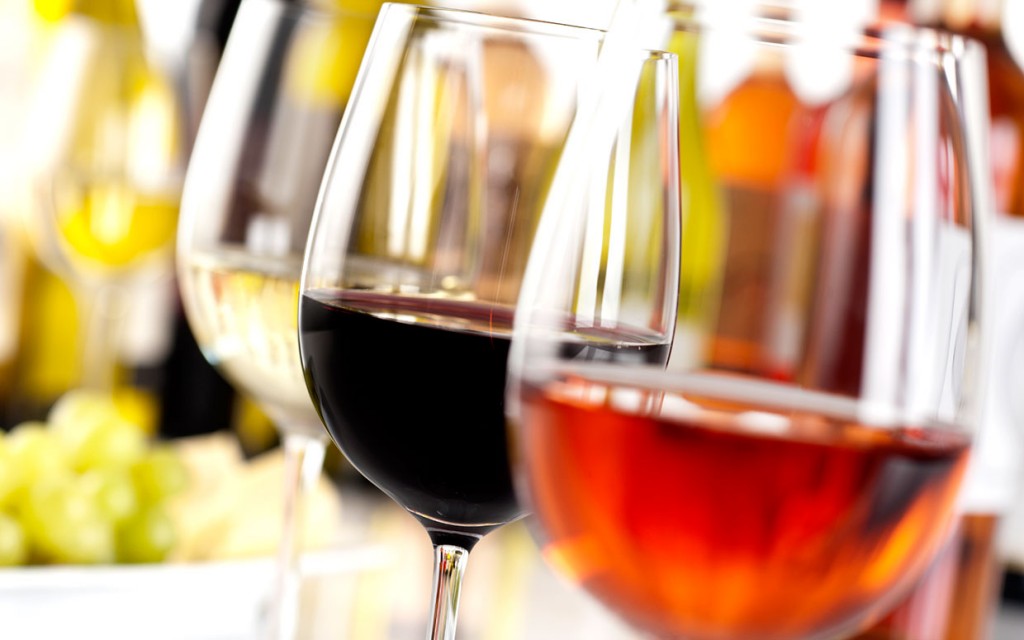Here we are with the second part of wine words you should learn, to better describe and understand your favorite beverage. And of course to impress your friends, bragging about your amazing wine knowledge. In the second part you can find the wine buzz words from F to O.
You can find the part I here, for those who missed it.
Fat:
When the Rhône valley has an exceptionally hot year for its crop and the wines attain a sort of super maturity, they are often very rich and concentrated, with low to average acidity. These wines are often said to be fat, which is a prized commodity. If they become too fat, that is a flaw and they are then called flabby.
Flabby:
A wine that is too fat or obese is a flabby wine. Flabby wines lack structure and are heavy to taste.
Fleshy:
Fleshy is a synonym for chewy, meaty, or beefy. It denotes that the wine has a lot of body, alcohol, and extract, and usually a high glycerin content. Châteauneuf-du-Pape and Hermitage are particularly fleshy wines.
Floral:
Wines made from the Muscat or Viognier grape have a flowery component, and occasionally a red wine will have a floral scent.
Focused:
Both a fine wine’s bouquet and flavor should be focused. Focused simply means that the scents, aromas, and flavors are precise and clearly delineated. If they are not, the wine is like an out-of-focus picture, diffuse, hazy and possibly problematic.
Forward:
An adjective used to describe wines that are (1) delicious, evolved, and close to maturity, (2) wines that border on being flamboyant or ostentatious, or (3) unusually evolved and/or quickly maturing wines.
Foudre:
Large oak barrels that vary enormously in size but are significantly larger than the normal oak barrel used in Bordeaux or the piece used in Burgundy. They are widely used in the Rhône Valley.
Fresh:
Freshness in both young and old wines is a welcome and pleasing component. A wine is said to be fresh when it is lively and cleanly made. The opposite of fresh is stale.
Fruity:
A very good wine should have enough concentration of fruit so that it can be said to be fruity. Fortunately, the best wines will have more than just a fruity personality.
Full-bodied:
Wines rich in extract, alcohol, and glycerin are full-bodied wines. Most Rhône wines are full-bodied.
Garrigue:
In the southern Rhône Valley and Provence, this is the landscape of small slopes and plateaus. This Provencal word applies to these windswept hilltops/slopes inhabited by scrub-brush and Provencal herb outcroppings. The smell of garrigue is often attributed to southern Rhône Valley wines. Suggesting more than the smell of herbes de Provence, it encompasses an earthy/herbal concoction of varying degrees of intensity.
Green:
Green wines are wines made from underripe grapes; they lack richness and generosity as well as having a vegetable character. Green wines are infrequently made in the Rhône, although vintages such as 1977 were characterized by a lack of ripening.
Hard:
Wines with abrasive, astringent tannins or high acidity are said to be hard. Young vintages of Rhône wines can be hard, but they should never be harsh.
Harsh:
If a wine is too hard it is said to be harsh. Harshness in a wine, young or old, is a flaw.
Hedonistic:
Certain styles of wine are meant to be inspected; they are introspective and intellectual wines. Others are designed to provide sheer delight, joy, and euphoria. Hedonistic wines can be criticized because in one sense they provide so much ecstasy that they can be called obvious, but in essence, they are totally gratifying wines meant to fascinate and enthrall-pleasure at its best.
Herbaceous:
Many wines have a distinctive herbal smell that is generally said to be herbaceous. Specific herbal smells can be of thyme, lavender, rosemary, oregano, fennel, or basil and are common in Rhône wines.
Herbes de Provence:
Provence is known for the wild herbs that grow prolifically throughout the region. These include lavender, thyme, sage, rosemary, and oregano. It is not just an olfactory fanciness to smell many of these herbs in Rhône Valley wines, particularly those made in the south.
Hollow:
Also known as shallow, hollow wines are diluted and lack depth and concentration.
Honeyed:
A common personality trait of specific white Rhône wines, a honeyed wine is one that has the smell and taste of bee’s honey.
Hot:
Rather than meaning that the temperature of the wine is too warm to drink, hot denotes that the wine is too high in alcohol and therefore leaves a burning sensation in the back of the throat when swallowed. Wines with alcohol levels in excess of 14.5% often taste hot if the required depth of fruit is not present.
Inox vats:
This is the French term for stainless steel vats that are used for both fermentation and storage of wine.
Intensity:
Intensity is one of the most desirable traits of a high-quality wine. Wines of great intensity must also have balance. They should never be heavy or cloying. Intensely concentrated great wines are alive, vibrant, aromatic, layered, and with a compelling texture. Their intensity adds to their character, rather than detracting from it.
Jammy:
When wines have a great intensity of fruit from excellent ripeness they can be jammy, which is a very concentrated, flavorful wine with superb extract. In great vintages such as 1961, 1978, 1985, 1989, 1990, and 1995, some of the wines are so concentrated that they are said to be jammy.
Kisselguhr filtration system:
This is a filtration system using diatomaceous earth as the filtering material, rather than cellulose, or in the past, before it was banned, asbestos.
Leafy:
A leafy character in a wine is similar to a herbaceous character, with the difference that it refers to the smell of leaves rather than herbs. A wine that is too leafy is a vegetable or green wine.
Lean:
Lean wines are slim, rather streamlined wines that lack generosity and fatness but can still be enjoyable and pleasant.
Lively:
A synonym for fresh or exuberant, a lively wine is usually young wine with good acidity and a thirst-quenching personality.
Long:
A very desirable trait in any fine wine is that it be long in the mouth. Long (or length) relates to a wine’s finish, meaning that after you swallow the wine, you sense its presence for a long time. (Thirty seconds to several minutes is great length). In a young wine, the difference between something good and something great is the length of the wine.
Lush:
Lush wines are velvety, soft, richly fruity wines that are both concentrated and fat. A lush wine can never be an astringent or hard wine.
Massive:
In great vintages where there is a high degree of ripeness and superb concentration, some wines can turn out to be so big, full-bodied, and rich that they are called massive. A great wine such as the 1961 or 1990 Hermitage La Chapelle is a textbook example of a massive wine.
Meaty:
A chewy, fleshy wine is also said to be meaty.
Monocépage:
This term describes a wine made totally of one specific varietal.
Monopole:
Used to denote a vineyard owned exclusively by one proprietor, the word monopole appears on the label of a wine made from such a vineyard.
Morsellated:
Many vineyards are fragmented, with multiple growers owning a portion of the same vineyard. Such a vineyard is often referred to as a morsellated vineyard.
Mouth-filling:
Big, rich, concentrated wines that are filled with fruit extract and are high in alcohol and glycerin are wines that tend to fill the mouth with their texture. A mouth-filling wine is also a chewy, fleshy, fat wine.
Musty:
Wines aged in dirty barrels, unkempt cellars or exposed to a bad cork take on a damp, musty character that is a flaw.
Nose:
The general smell and aroma of a wine as sensed through one’s nose and olfactory senses is often called the wine’s nose.
Oaky:
Many red Rhône wines are aged from 6 months to 30 months in various sizes of oak barrels. At some properties, a percentage of the oak barrels may be new, and these barrels impart a toasty, vanilla flavor and smell to the wine. If the wine is not rich and concentrated, the barrels can overwhelm the wine, making it taste overly oaky. Where the wine is rich and concentrated and the winemaker has made a judicious use of barrels, however, the results are a wonderful marriage of fruit and oak.
Off:
If a wine is not showing its true character, or is flawed or spoiled in some way, it is said to be “off.”
Overripe:
An undesirable characteristic; grapes left too long on the vine become too ripe, lose their acidity, and produce wines that are heavy. This can happen frequently in the hot viticultural areas of the Rhône Valley if the growers harvest too late.
Oxidized:
If a wine has been excessively exposed to the air during either its making or aging, the wine loses freshness and takes on a stale, old smell and taste. Such a wine is said to be oxidized.



 0
0